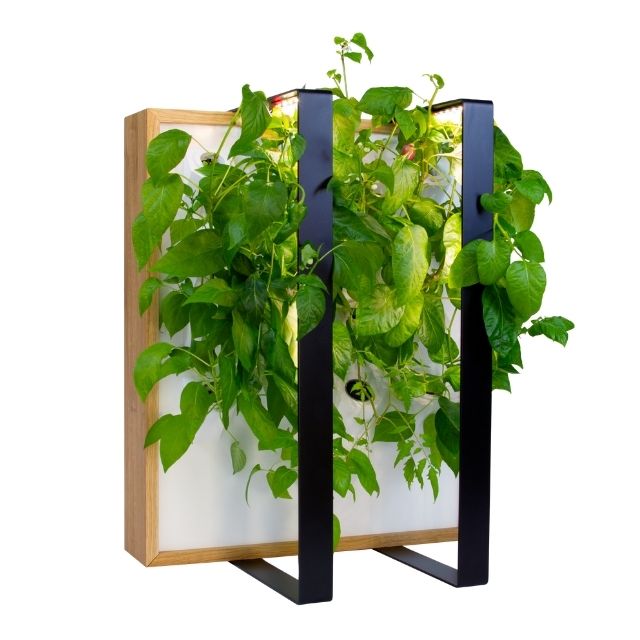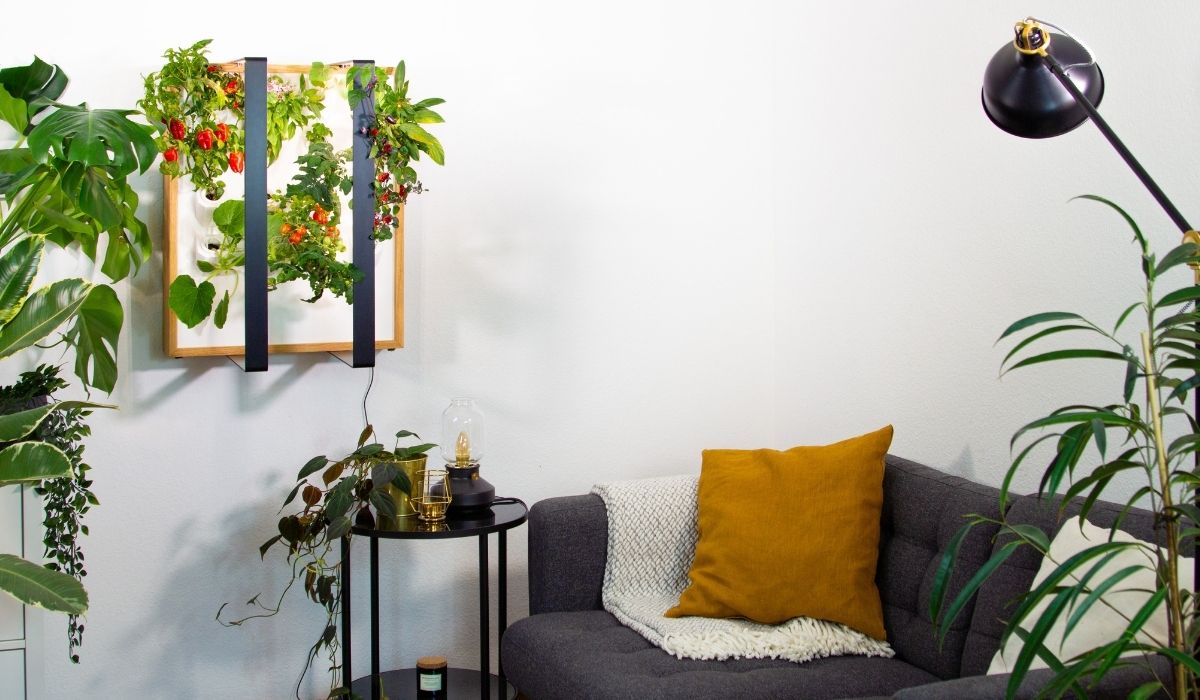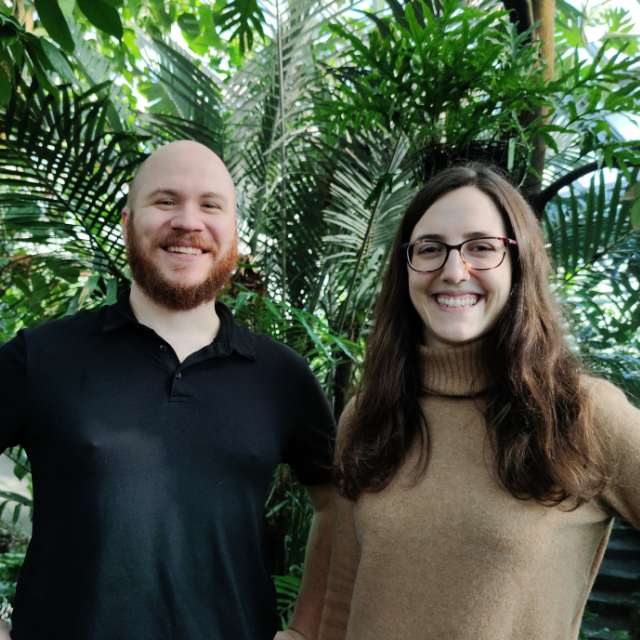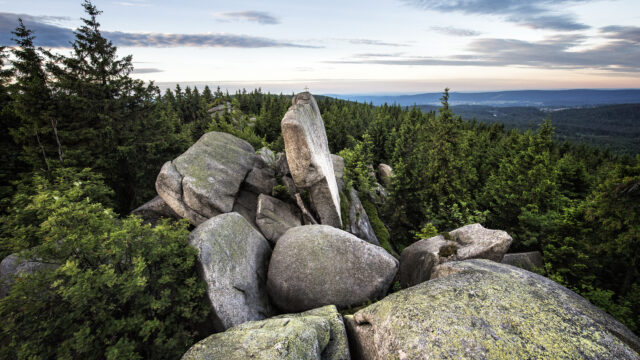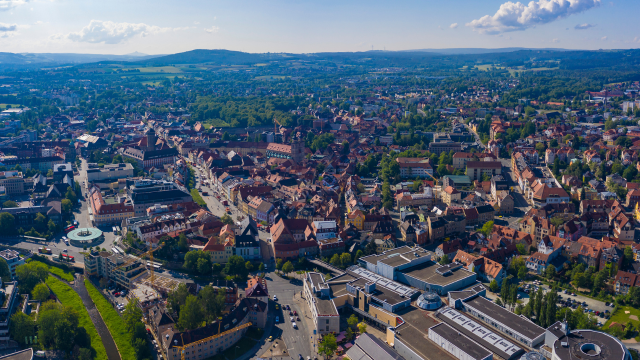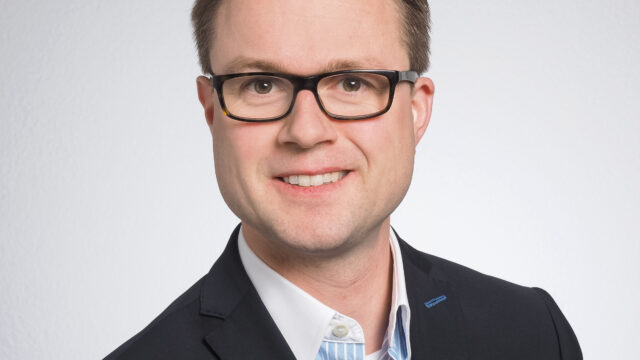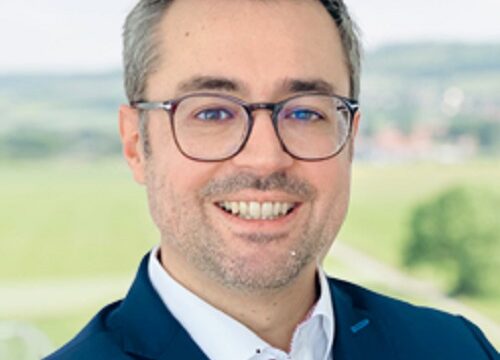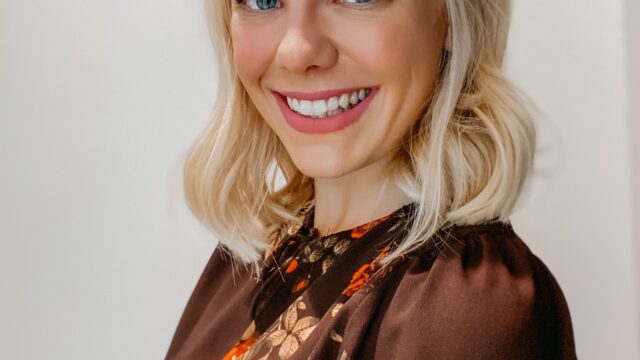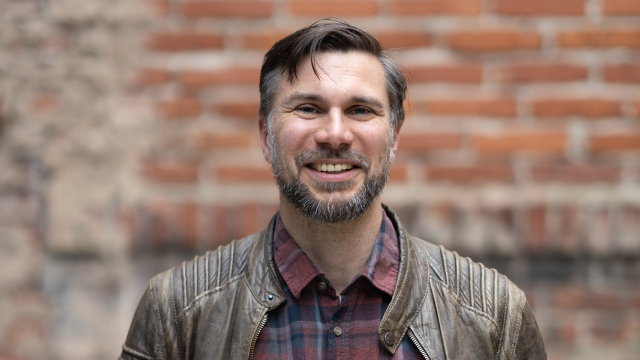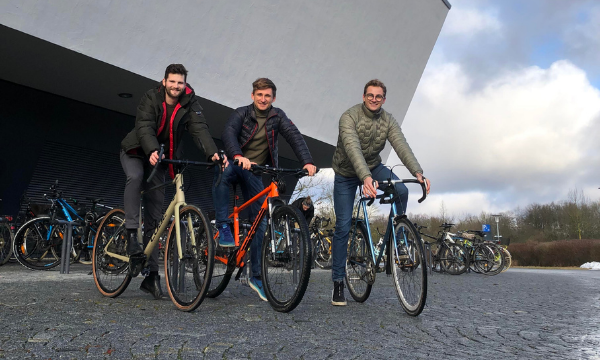Bayreuth. Stage for founders:
Start-up Myriad develops autonomous indoor garden
Gardening like on the space station
Until now, the dream of growing one’s own vegetables has been impossible for many people, either because of a lack of arable land or a lack of gardening talent. The young start-up Myriad from Bayreuth can now make this dream come true for everyone – thanks to innovative ideas from space technology.
The principle of the vertical farm for everyone: plants such as herbs, tomatoes, peppers & Co. do not need soil and virtually no care to grow. The indoor garden supplies them automatically with a nutrient-enriched mist inside the module and with a light spectrum from outside that is adjusted to the needs of plants.
The result: 16 different plants can be grown in an area of only 0.15 m² – no matter where they are, 365 days a year and with twice the growth rate of a conventional garden. Indoor farmers only have to fill in water and harvest at the garden’s tip.
With an Exist start-up grant in their pocket, the start-up duo Myriad decided to collaborate with the University of Bayreuth and thus laid the foundation for an innovative company here.
Why did you move to Bayreuth?
Yannic Hönle: My brother is currently doing his doctorate at the University of Bayreuth. That’s how we met Prof. Clemens, the chair and founding dean of the new “Faculty of Life Sciences: Food, Nutrition and Health”. We presented our idea to him, showed him prototypes and were thus able to win him over as a mentor. Our innovative production system for self-sufficiency is a great match for the faculty’s research focus on “food quality”.
What do you particularly like about Bayreuth?
Miriam Martín González: Until we moved here, we hardly knew Bayreuth at all.
We were all the more positively surprised by the beautiful city centre with its many cosy little streets.
We were particularly pleased about the many green spaces in the city with the beautifully designed Ecological Botanical Garden, the Wilhelminenaue, the Eremitage and the Hofgarten.
Another huge plus for us is the proximity to the Fichtelgebirge.
In your opinion, what advantages do Bayreuth and the region offer, especially for founders and start-ups?
Yannic Hönle: In Bayreuth, there is a real spirit of optimism about start-ups, which is really contagious.
Business development, the university and founders work closely together in Bayreuth and the entire region – this proximity to each other and the resulting mutual support is, in our opinion, the greatest advantage of Bayreuth as a location. Just like the still manageable size of the start-up scene in Bayreuth.
Here, you are not one of thousands of start-ups, but can make contacts and find support relatively quickly.

What is revolutionary about your product?
Miriam Martín González: Vertical farms are just making their way into supermarkets, but we want to go one step further.
With our product, we make it possible for everyone to grow their own vegetables, because our autonomous garden automates all the work, so it does it itself, so to speak.
At the same time, it is so space-saving and efficient that you can cover your own needs for tomatoes, cucumbers, peppers, herbs, etc. on just a few square metres – 365 days a year. This means: freshly harvested tomatoes even in winter.
What are your next plans?
Yannic Hönle: We are currently about to start the first production series of the Myriad Garden. Our goal is to start the production phase with higher quantities in order to be able to offer a price that makes the technology accessible to as many people as possible. To achieve this, we will soon be collecting orders in a crowdfunding campaign.
You can sign up for pre-orders now on our new website and get free seeds for a whole year as a thank you for helping us get started.
We believe in technology to create a better future.
How much do you want to grow?
Miriam Martín González: About 270 million households in Europe would like to grow their own vegetables. Until now, they have not been able to do so due to lack of space, time or prior knowledge.
With our garden, on the other hand, anyone can grow their own. Moreover, our technology is not only suitable for private use. In the future, we also want to offer autonomous gardens for restaurants, bars and small shops, which can then offer freshly harvested herbs and vegetables directly on site.
What do you think is crucial for arriving in a new city and eventually feeling at home?
Yannic Hönle: Good food plays one of the most important roles, even if the vegetables are not home-grown. We like to go out to eat in Bayreuth and we also think the refectory at Bayreuth University is great. We have often taken advantage of the evening offerings to end a long day at work.
You can only really feel at home in a new city if you can relax in comfort.
Can you imagine staying in Bayreuth for the foreseeable future?
Miriam Martín González: In the last few years we have met many interesting people who are just as enthusiastic about our product as we are. That naturally creates a bond with the location.
If we can find both capital and staff for Myriad in Upper Franconia, we would very much like to stay in beautiful Bayreuth.
